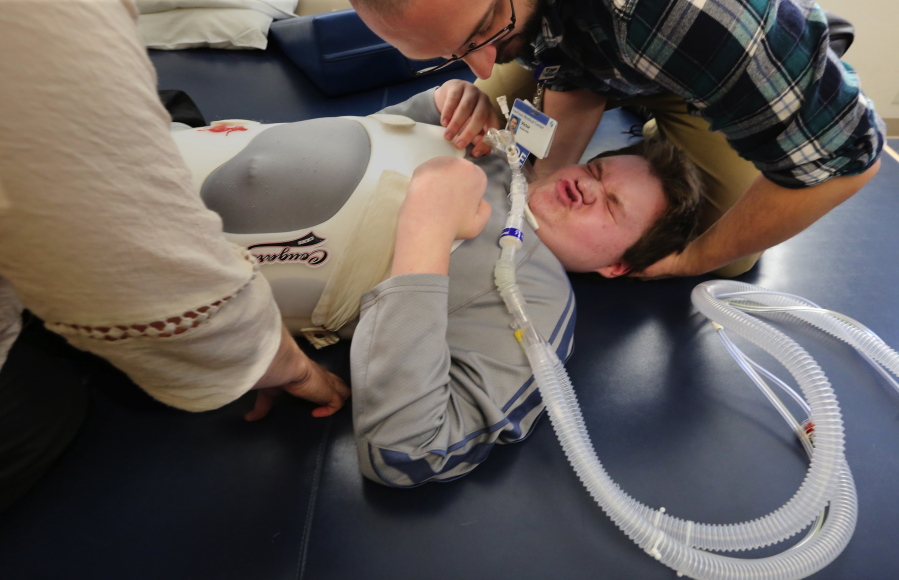BREMERTON –Hayden Werdal can move his right hand and wiggle his left thumb. He can kick his right leg a bit and bend the left one.
But for the 15-year-old Bremerton boy, that’s been the extent of his motion for two years, ever since he came down with a mysterious, polio-like illness that left him mostly paralyzed from the neck down.
“Hayden is getting stronger, but he’s still considered a quadriplegic,” said his mother, Heather Werdal, 44. “We fight all the time to get back to some normal.”
This fall, just as Hayden marks the second year of his illness, medical experts in Washington state and beyond are puzzling once again over the disorder known as acute flaccid myelitis, or AFM.



